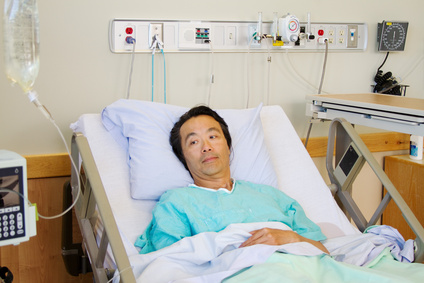Almost everyone ends up in the hospital at some time of their lives. Even if they don’t, they will have a friend or loved one that will. Learning how to visit someone in the hospital is not just a skill for ministers and chaplains. It is a skill every person should learn.

Visiting the Hospital
Many people are intimidated by the hospital, but you don’t need to be. It is a place of healing and caring. In most settings you will find hospital staff to be kind and compassionate. Sometimes the hospital building can be confusing to navigate, but usually there is a front desk where you can ask someone for guidance and directions.
When you visit someone who has been admitted to the hospital, here are some “Do’s” and “Don’ts”…
First, the “Don’ts”…
- Don’t stay too long. They are sick, or hurt. They probably don’t feel like entertaining guests for long. They want to know that people care enough to come see them, but they still need their rest. There are some exceptions. Family may want you to hang around awhile for comfort and help. You have to use your best judgment.
- Don’t sit on the bed. You never know what that could do. You could move the bed and hurt the patient. You could even sit in something you don’t want to sit in. One time my friend sat on someone’s bed only to find he was sitting in a pool of urine. Yuk! I think you get the picture.
- Don’t compare their sickness with other people or with yourself. This can be offensive. People don’t want their illness or injury to be compared to others. Just talk to them about their issue. Sometimes it is appropriate to mention others who are going through the same thing, but be careful about this.
- Don’t stand off at the edge of the room, approach them. You came to visit, don’t look like you are scared of the patient.
- Don’t interfere with hospital staff. This is the health care professional’s domain. The patient is there to receive their care first and foremost. Your visit is very important, but it is a support and not the primary care role while they are in the hospital.
Next, the “Do’s”…
- Knock first and open the door slowly. You don’t want to hit anyone with the door. You don’t want to come in too fast and catch them in an immodest position (going to the bathroom, getting a sponge bath, dressing, or breastfeeding).
- Leave a note if they are not there or if they are busy with hospital staff. The patient may be getting direct care from nurses or may be away from the room for tests or rehab. Leaving a note lets them know you care and came.
- Consider your tone. Know who you are visiting and be sensitive to their emotional needs. It is good to default on the side of being serious rather than joking. But know and assess the person. Sometimes jesting is in order. But you have to be careful.
- Be sensitive to their modesty needs. Protect their modest always. People feel like they lose a lot of dignity in the hospital. Don’t make that worse.
- Do ask if you may pray for them. Prayer is powerful. It is powerful because God answers prayers. But it is also emotionally powerful for the one being prayed for. When you pray for someone, they experience a connection with God during a time of weakness and vulnerability. They are often keenly aware of their dependence and can be deeply blessed to be assured of God’s care in their lives. Make your prayer brief and positive.
The Bible tells us to “carry each other’s burden’s.” (Galatians 6:2) Visiting someone in the hospital can be one way to do that.
Challenge: Next time someone you know goes to the hospital, plan on visiting them and showing you care.
Question: Can you add any other “do’s” or “don’ts” when it comes to hospital visits? Share them with us. You can leave a comment by clicking here.







If you aren’t able to get out and visit your friend or family member, on the Owensboro Health website, http://www.owensborohealth.org, you can send a Cheer Card. There is a wide variety of cards for all occasions, These are printed and delivered to patients daily. You will need the patient’s first and last name along with the patient room number (call 270-417-2000 and they can provide you the room number). It’s a great way to let them know they are in your thoughts and prayers.
Thank you so much for the Dos and Donts
I find if I can afford it I take a small gift. Everyone likes to receive gifts n it puts a smile on a persons face n can make them feel cared about after the visit is over. I try n be sensitive to the reason their in the hospital though for example you don’t want to take candy to a diabetic or flowers that have scent the person may not be able to take the smell n so on these are just a couple of examples.
Great ideas!
I love people and when I go the hospital to visit, everyone who I cross paths with I see as a mission field. A smile, nod, a silent prayer… so many ways God can use me. We never know what someone is hurting from and my kindness through words or actions can truly give someone the hope they need! I’m so grateful to have a hospital when it is needed! Blessing to those who serve in this profession!
Yes indeed, this simple ministry makes such an impact.